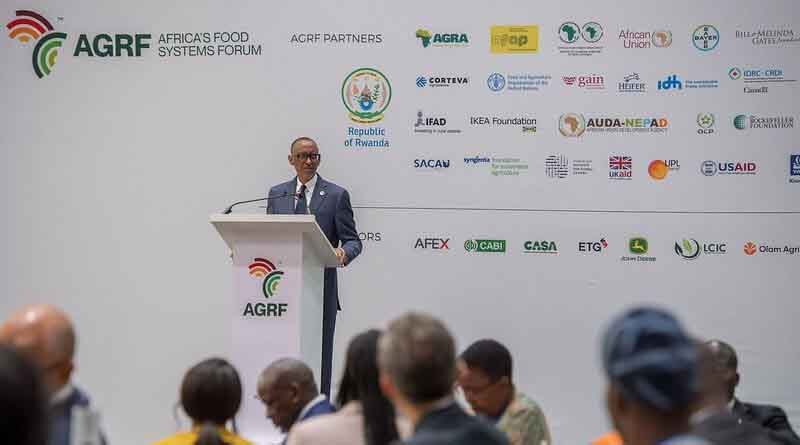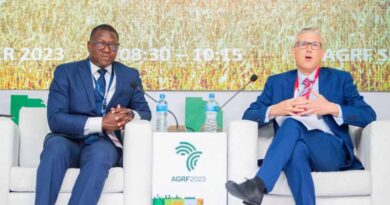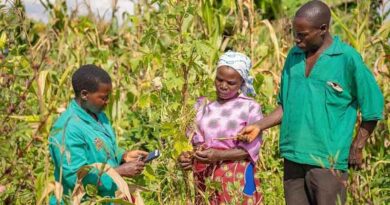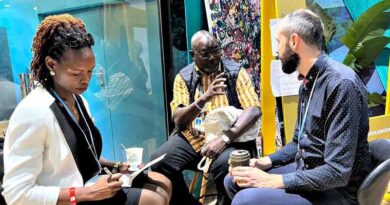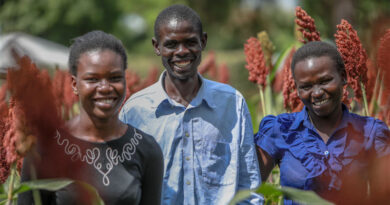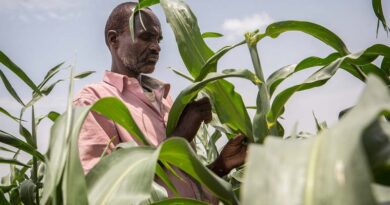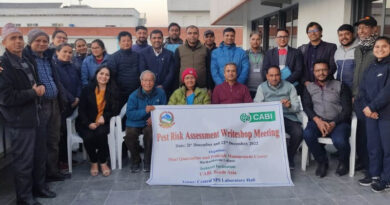CABI and CASA attend African Green Revolution Summit to showcase efforts towards greater food security in Africa
21 September 2022, Africa: CABI has joined colleagues from the Commercial Agriculture for Smallholders and Agribusiness (CASA) programme at the annual African Green Revolution Conference (AGRF) to showcase their efforts towards greater food security in Africa.
The theme of the AGRF was ‘Grow, Nourish, Reward – Bold Actions for Resilient Food Systems.’ The conference explored the action tracks that will accelerate food system transformation, especially after the 2021 UN Food Systems Summit.
CABI was a sponsor of this year’s AGRF conference which was attended by CABI’s Director General, Development, Dr Dennis Rangi and Phyllis Ombonyo who is Head of Strategic Partnerships, Africa.
Staff from CABI’s regional centre for Africa, based in Nairobi, Kenya, shared a stand at the AGRF in Kigali, Rwanda, with colleagues from CASA – the latter of whom also had a place in the Agribusiness Dealroom at the event.
The Agribusiness Dealroom is a matchmaking platform that convenes stakeholders from the entire ecosystem to facilitate partnerships and investments in African agriculture. It specifically supports governments and SMEs with access to finance and partnership opportunities.
This aligns with the aim of the CASA programme to drive global investment in agribusinesses which trade with smallholders in equitable commercial relationships, increasing smallholders’ incomes and climate resilience.
At the stand shared by CABI and CASA, staff from CABI told delegates how the organization is helping smallholder commodity growers to produce for and compete in local and global markets.
In particular, CABI’s regional centre for Africa is encouraging rural innovation and helping local users access global information and knowledge in respect of how to grow more and lose less to crop pests and diseases.
Through the global CABI-led PlantwisePlus programme, for example, CABI is using a network of plant clinics – staffed by plant doctors – to help smallholder farmers diagnose a range of plant health issues before offering advice on how to mitigate them.
This includes building the capacity of youth and women farmers to be better informed to deal with invasive species – such as the fall armyworm – which can have a devastating impact on productivity and profits.
A study, led by Dr Justice Tambo and published in the journal World Development, showed how, for instance, Rwanda’s network of plant clinics helped maize farmers fight fall armyworm and maize stalk borer to achieve crop yield gains of 28% and net income gains of 23%.
Working with the Rwanda Agriculture and Animal Resources Development Board, Dr Tambo and colleagues from CABI’s centre in Kenya found the advice given to farmers has contributed to achieving a 5% reduction in the likelihood of a household falling below the extreme poverty line of $1.25 per day.
Dr Dennis Rangi said, “To revolutionize African agriculture and feed an African population expected to reach 2.6 billion by 2050, we must also empower youth to sustain the continent’s development.
“We simply cannot rely upon young people to be the only producers of food. Through upskilling and a digital ‘knowledge exchange’, they must also be involved across all stages of the value chain – starting from production.”
Phyllis Ombonyo said, “Tackling invasive species which threaten the yields and livelihoods of smallholder farmers and their communities is vital if Africa is to eliminate hunger by 2030.
“Indeed, we must also utilize the very latest in digital technologies and harness opportunities to expand agribusinesses across the continent as well as improve upon sanitary and phytosanitary standards.
“This is vital if Africa is to reach its full potential as an exporter of fresh fruits and vegetables to more profitable markets around the world.
“It is a difficult task exacerbated by the challenges of conflict, global pandemics such as COVID-19, and extreme weather events as a result of our changing climate. However, I believe in partnership and with the right investment, we can address these concerns.”
Meanwhile, CASA took the opportunity at its AGRF stand to showcase how its recent ‘The state of the agri-SME sector – bridging the finance gap’ report revealed a US $106bn annual financing gap.
Alvaro Valverde, Private Sector Engagement Manager (CABI) and Engagement, Learning and Communication Lead (CASA), said, “CASA stands ready to work with our partners and other interested parties to mobilise finance for climate adaptation, promoting climate-resilient food systems and increased smallholder incomes.”
According to the report, building the investment infrastructure around climate finance should be a priority to facilitate the absorption of climate funds at scale. This will include new models and taxonomies to support large donor investments in creating a substantial pipeline of viable investments with climate expertise integrated into all channels of agri-SME finance.
Also Read: Arrival of soybean in Mandsour Mandi improves; average rate lower than last year but above MSP
(For Latest Agriculture News & Updates, follow Krishak Jagat on Google News)

